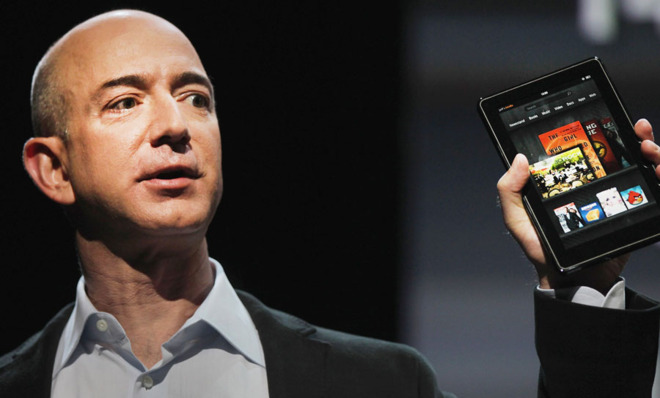This simple theory from an Israeli genius will revolutionize the way you think about business
Jeff Bezos is a big fan


A free daily email with the biggest news stories of the day – and the best features from TheWeek.com
You are now subscribed
Your newsletter sign-up was successful
Two years in business school and stints as an entrepreneur and business consultant had mostly convinced me that all management theories are basically a crock. The technical tools I learned in business school, such as accounting and financial analysis, were quite useful in the real world. But the abstract theories I was taught were rarely superior to good old-fashioned commonsense.
But there was one exception, which no one in business school told me about, but which I discovered through a friend who advises entrepreneurs on their business strategy: the theory of constraints (TOC).
TOC is the brainchild of an eccentric Israeli physicist, Eli Goldratt (now deceased), who produced the business novel The Goal, which became an underground bestseller and allowed him to devote himself fulltime to consulting and elaborating on his theory. Once I understood TOC's power, it came as no surprise to find out that Jeff Bezos, the greatest CEO alive today, makes all his senior executives read The Goal.
The Week
Escape your echo chamber. Get the facts behind the news, plus analysis from multiple perspectives.

Sign up for The Week's Free Newsletters
From our morning news briefing to a weekly Good News Newsletter, get the best of The Week delivered directly to your inbox.
From our morning news briefing to a weekly Good News Newsletter, get the best of The Week delivered directly to your inbox.
TOC is based on a very simple, yet very profound and powerful insight: In any complex system, the output is determined by one limiting factor. In other words, a chain is only as strong as its weakest link. Any complex system of production is made up of multiple linked activities, and one of them will be the bottleneck that determines the output of the whole system.
The reason why this is so profound is that most managers spend their time trying to improve every part of the system they oversee, often with very mixed results. But if the output of the whole process — even an improved process — is still limited by the bottleneck, then any effort spent optimizing anything else is basically wasted (and can even be counterproductive).
The theory of constraints therefore says that the manager's job is to identify what the bottleneck is, and then systematically improve it until it is no longer the bottleneck — at which point, something else will be the bottleneck, and the job of identifying and optimizing the bottleneck starts over.
TOC came of age in the 1980s, when globalization began hammering industrial companies all over America and Europe, essentially as the West's response to Japan's famed "kaizen" system. But the theory has applications way beyond the world of industrial manufacturing.
A free daily email with the biggest news stories of the day – and the best features from TheWeek.com
Imagine a supplier and a buyer haggling over price. At first blush, it looks like a pure zero-sum transaction. If one wins, the other loses, and the outcome will only be determined by brute power. But if you look at it from the perspective of each side's constraints, a solution might emerge. For example, what if the supplier was willing to deliver on a tighter schedule, because that's not where his bottleneck is? This would mean that the buyer would have to hold less inventory, which would then free up cash, so that he could pay more while still coming out ahead. And let's say that the buyer recognizes that inventory build-up is the bottleneck that constrains his operation, rather than the price he pays the supplier. Such realizations take a zero-sum situation where someone has to lose for the other to win into a positive-sum situation where both parties can win.
TOC is brilliant in its own right. But one of the things that attracted me to TOC is that its manifesto is a novel. Business strategy often drapes itself in the accouterments of science when it is intrinsically unscientific, since business events are non-repeatable. Business books give themselves ponderous airs, giving you a view from 30,000 feet. But humans learn best from and through stories, and when it comes to human stuff like business, stories are the best way to understand problems and their solutions. While no one will praise The Goal's literary qualities, it is still an engaging and profound book.
So here's my advice: If you're in the business world (or dealing with management or strategizing generally) read The Goal. You can thank me later.
Pascal-Emmanuel Gobry is a writer and fellow at the Ethics and Public Policy Center. His writing has appeared at Forbes, The Atlantic, First Things, Commentary Magazine, The Daily Beast, The Federalist, Quartz, and other places. He lives in Paris with his beloved wife and daughter.
-
 American universities are losing ground to their foreign counterparts
American universities are losing ground to their foreign counterpartsThe Explainer While Harvard is still near the top, other colleges have slipped
-
 How to navigate dating apps to find ‘the one’
How to navigate dating apps to find ‘the one’The Week Recommends Put an end to endless swiping and make real romantic connections
-
 Elon Musk’s pivot from Mars to the moon
Elon Musk’s pivot from Mars to the moonIn the Spotlight SpaceX shifts focus with IPO approaching
